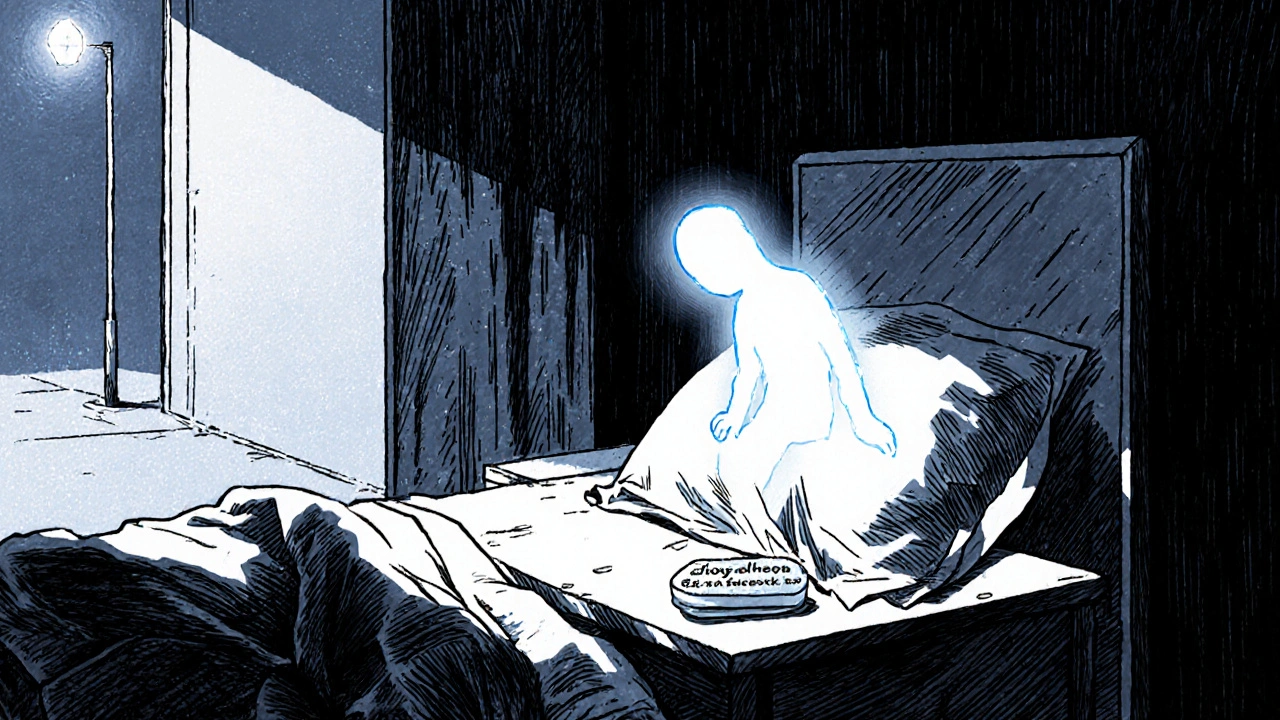Doxylamine Succinate: What It Is, How It Works, and What You Need to Know
When you can’t fall asleep and your mind won’t shut off, Doxylamine succinate, a sedating antihistamine used primarily as an over-the-counter sleep aid. Also known as Unisom SleepTabs, it’s one of the most common ingredients in non-prescription sleep medications. Unlike caffeine or stimulants that keep you awake, doxylamine slows down brain activity by blocking histamine — a chemical your body uses to stay alert. It’s not a sleeping pill in the traditional sense, but it works fast, usually within 20 to 30 minutes, and lasts through the night.
It’s often paired with other ingredients in cold and flu remedies, but its main use is for short-term insomnia. People who struggle with falling asleep — not staying asleep — tend to benefit most. But it’s not for everyone. If you have glaucoma, an enlarged prostate, or breathing problems like sleep apnea, it can make things worse. Older adults are especially sensitive to its drowsy effects, which can linger into the next day and increase fall risk. And while it’s available without a prescription, that doesn’t mean it’s harmless. Taking more than recommended won’t help you sleep longer — it just raises your chance of dizziness, dry mouth, or even confusion.
Doxylamine succinate relates to other sleep aids like diphenhydramine (Benadryl), but it’s stronger and longer-lasting. It’s also different from melatonin, which adjusts your body clock, or prescription drugs like zolpidem, which target specific brain receptors. Doxylamine works the old-fashioned way: by making you drowsy. That’s why it’s often recommended for occasional use, not nightly. Long-term use can lead to tolerance, meaning you need more to get the same effect. And if you stop suddenly, you might have trouble sleeping even without the drug.
What you’ll find below are real comparisons and experiences from people who’ve used doxylamine — sometimes successfully, sometimes not. You’ll see how it stacks up against other sleep aids, what side effects users actually report, and when it’s better to skip it entirely. There’s also insight on mixing it with other medications, why some people feel groggy for hours, and what to do if it stops working. This isn’t just a list of products — it’s a practical guide built from real cases, so you can decide if doxylamine is right for you — or if there’s something safer, smarter, or more effective waiting for you.
Doxylamine Succinate vs Other Sleep Aids: Detailed Comparison
A detailed side‑by‑side look at Doxylamine Succinate versus diphenhydramine, hydroxyzine, melatonin and more, covering how they work, effectiveness, side effects, and when to choose each.
read more